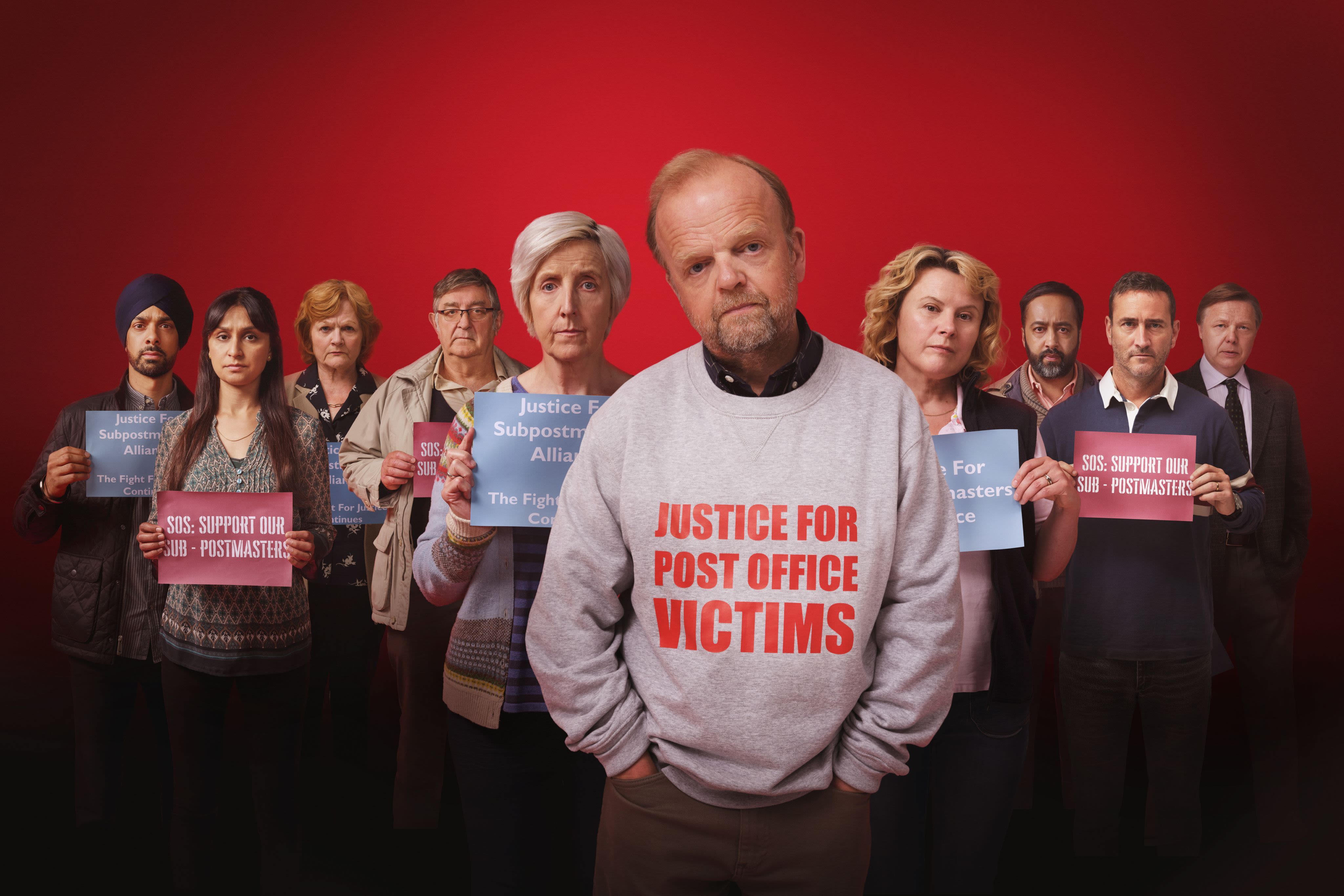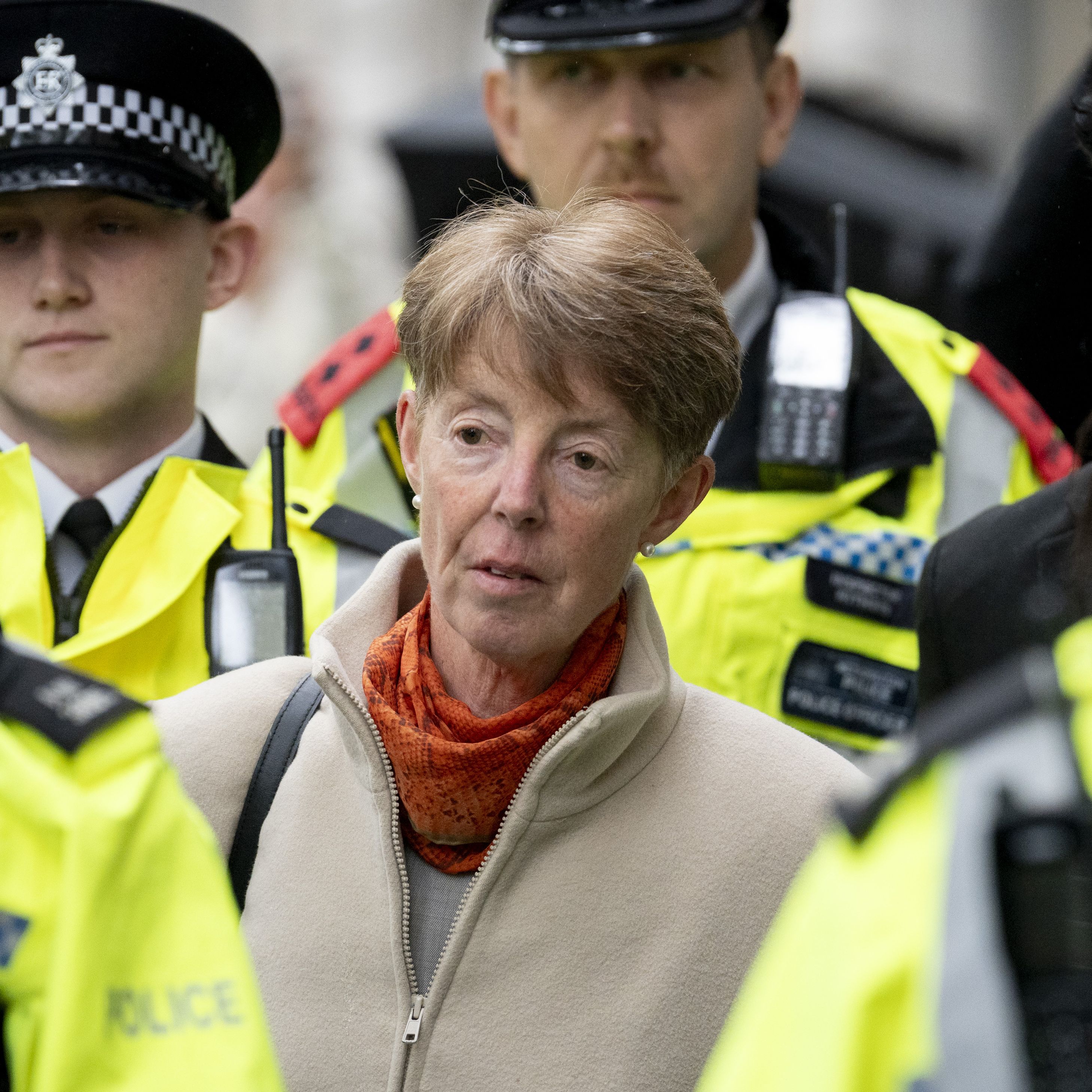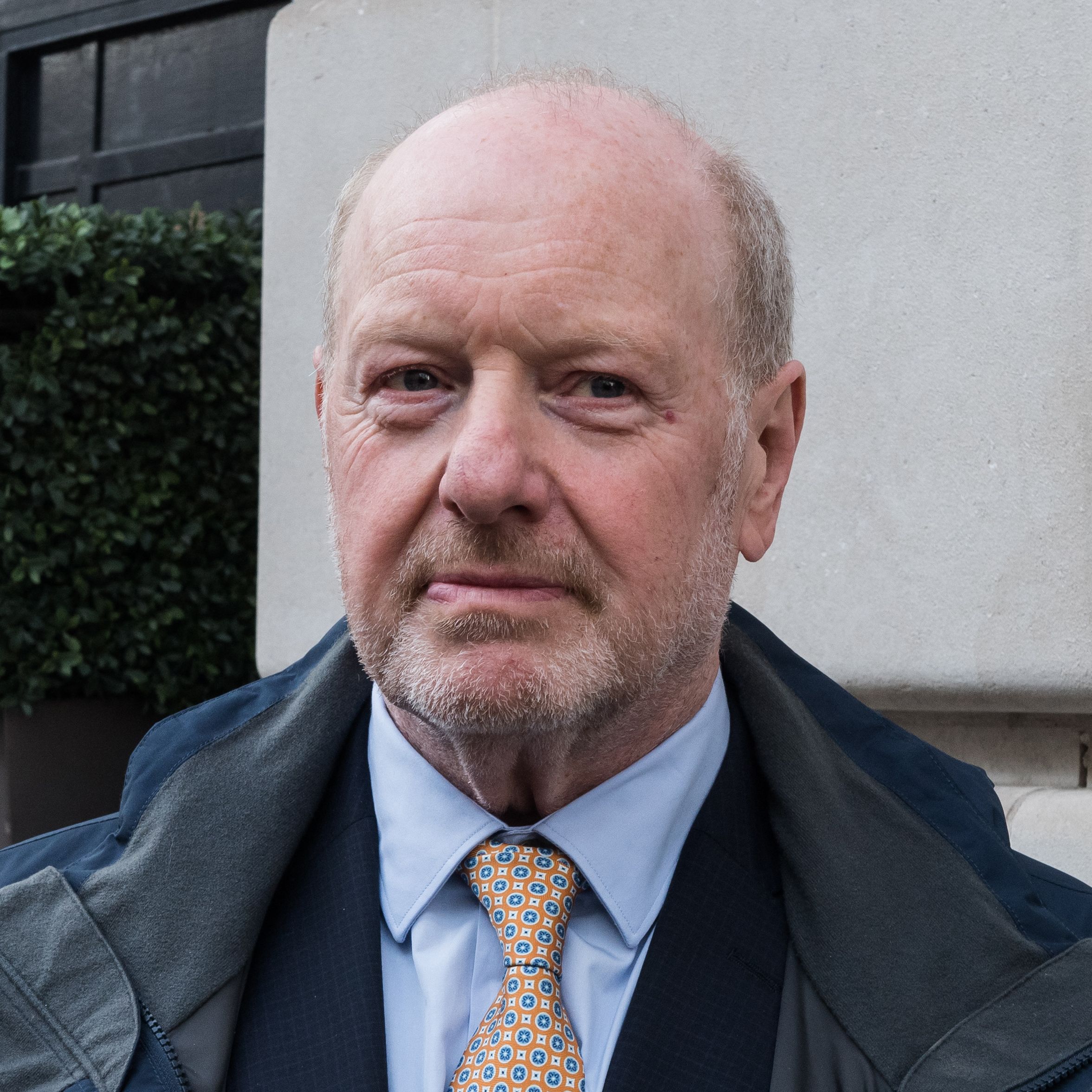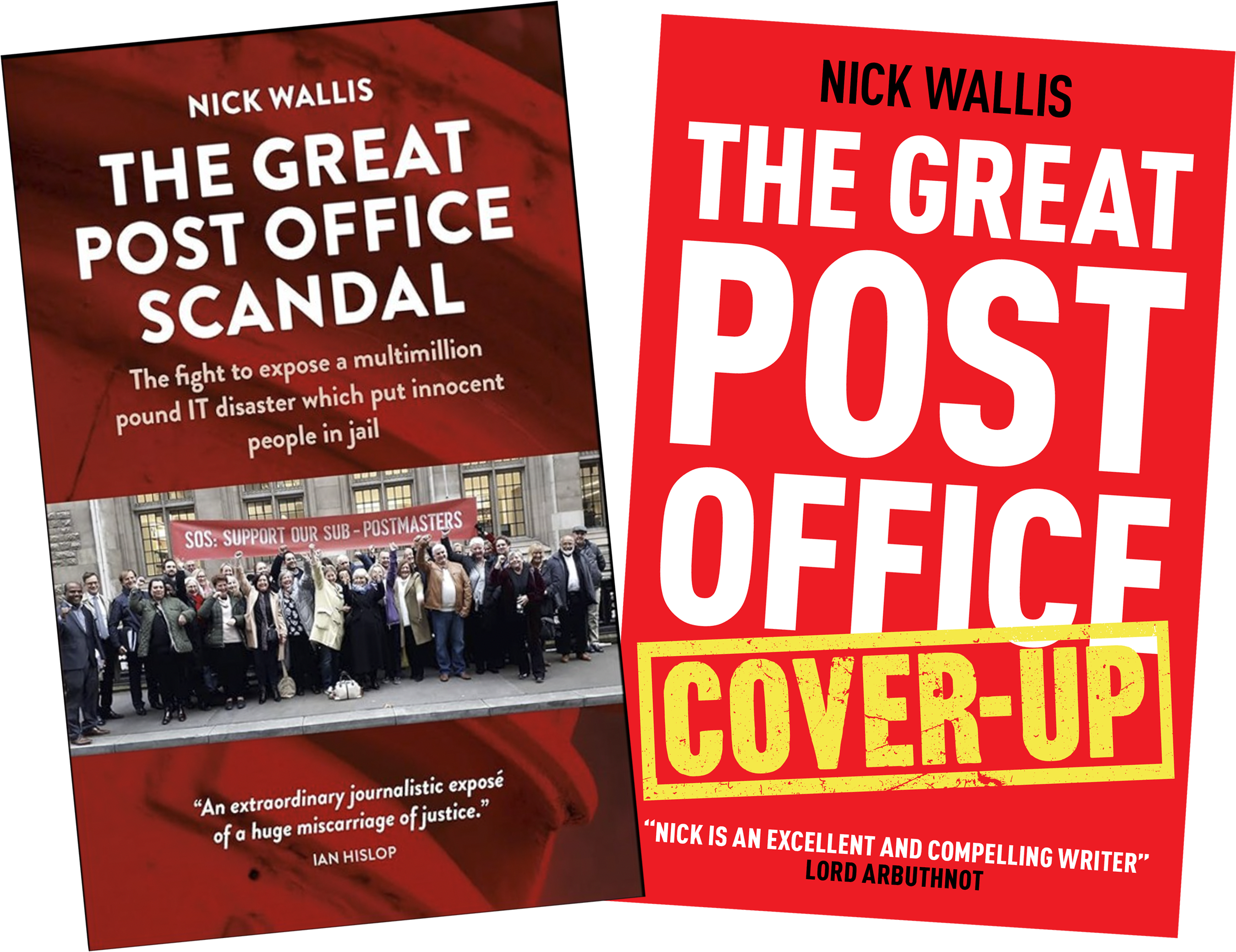‘It has to become harder to do the wrong thing’
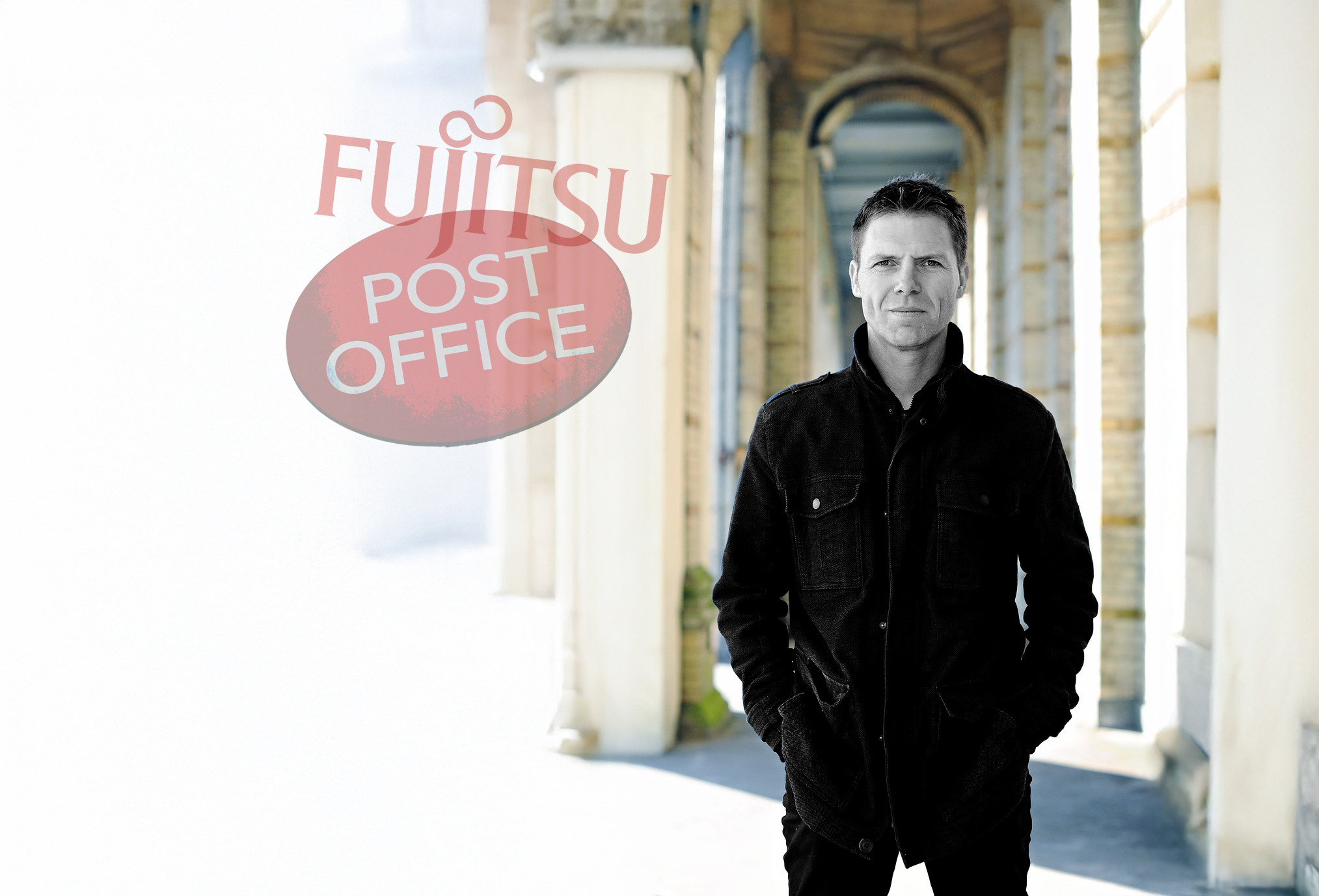
‘It has to become harder to do the wrong thing’

Broadcaster Nick Wallis played a leading role in exposing the Post Office scandal. Ahead of his keynote interview at the ICAS Ethical Leadership Forum this month, he talks to Lysanne Currie about governance, accountability, delayed compensation and where he thinks the money went
November 2010: Nick Wallis was presenting BBC Surrey’s breakfast show when a tweet came through. It was from a local taxi company wanting to bid for the station’s cab account. The local station didn’t have a cab account so, he recalls, “I responded a little flippantly, asking if the drivers had any good stories to tell.”
Davinder Misra, the owner of the cab company, answered in the affirmative and gave Wallis his number. Within half an hour Wallis learned that Misra’s pregnant wife, Seema, had been sent to prison for a crime she didn’t commit.
She was one of hundreds of sub-postmasters who were wrongly prosecuted after Horizon, the Post Office’s faulty accounting system, which was made by Japanese tech giant Fujitsu, made it seem there were shortfalls in the branch accounts. Contractually the sub-postmasters were personally responsible for any discrepancies. More than 900 were dragged into court. Many were fined, required to pay back “missing” money that wasn’t actually missing or deprived of their business; 236 went to jail. It is Britain’s biggest miscarriage of justice to date.
The long-running public inquiry concluded its hearings in December 2024, after three years and millions of pages of testimony from more than 5,000 witnesses. The final report and its recommendations are set to be published this year.
In April, the Financial Reporting Council (FRC) announced it had begun an investigation into EY and its audit of the Post Office accounts from 2015 to 2018. The investigation, the FRC said, “would be focused on the role of statutory auditors in meeting the auditing standards that pertained at the time, and not the broader issues related to the Horizon IT system itself”.
Changing lanes
Wallis wasn’t an investigative journalist until that morning. “I was a jobbing breakfast show presenter,” he says. But, on hearing the story, Wallis’s BBC Surrey boss told him to take it down to BBC Southampton, which had an investigations unit. “That opened up that world for me and gave me the opportunity to work with some of the best investigative journalists in the business.” In February 2011, he presented a segment on the Post Office for the BBC’s local news show, Inside Out South.
For Wallis, that one tweet started a new chapter in his career and a 15-year (and counting) determination to bring to light the scandal and get justice for the sub-postmasters. His output on the affair to date includes one book, with a second to follow this year, a Private Eye special report (with journalist and former tax inspector Richards Brooks), the podcast Investigating the Post Office Scandal (with former Computer Weekly journalist Rebecca Thomson), a Panorama programme and the Radio 4 series, The Great Post Office Trial.
The Inside Out South show where Wallis made his investigative debut
Wallis was also a consultant on Mr Bates vs the Post Office, the ITV drama that lifted the roof off the long-simmering scandal and won three Baftas in May. Screened over four episodes from New Year’s Day 2024, it became ITV’s biggest new drama in over a decade.
“No one was expecting the reaction,” Wallis says. “I obviously saw it before it went out, but I was just watching it for technical and narrative shortcuts – I just didn’t see the emotional impact of it. The drama brought the camera into the emotional touch points of the story and brought them to life. They did it incredibly faithfully and it worked.”
Mr Bates vs the Post Office caused a cultural ripple effect: 50 new potential victims contacted lawyers and the government quickly passed a new law to exonerate and compensate sub-postmasters. While Paula Vennells, the Post Office’s former CEO, was obliged to hand back her CBE, some of the victims of the institution she led were honoured – the drama’s titular hero Alan Bates received a knighthood and Seema Misra, whose husband gave Wallis his first sniff of the scandal, is now an OBE.
Justice delayed
For all the fervour of the past 18 months, however, some sub-postmasters still haven’t received compensation.
In her Budget last October, Chancellor Rachel Reeves announced the government had allocated £1.8bn to cover all compensation claims. Earlier this year, the government said approximately £663m had been paid out to more than 4,300 claimants, with payments ranging from £10,000 to more than £1m. Yet, the roll-out of these payments has been criticised by many – including Bates – for being too slow.
Making a drama out of a crisis: ITV show Mr Bates vs the Post Office
Making a drama out of a crisis: ITV show Mr Bates vs the Post Office
“A lot of compensation has been doled out,” explains Wallis. “But there are a lot of people who suffered unimaginably and the people who suffered most, such as Alan Bates, are the least likely to have been compensated. They have put together what they considered to be fair claims using experts who are experienced professionals in this field and the government’s arguing the toss.
“I vacillate between thinking it’s the lawyers who are just trying to make themselves useful, because why would you agree a claim when you can rack up a lot more billable hours by querying it? However they’re acting under instruction and that instruction is coming from somewhere: I suspect from within government, specifically the Treasury, who need to have ‘value for money’ considerations when it comes to compensation.
“No one’s saying they shouldn’t, but there are ways of doing it and it just seems completely wrongheaded that a lot of high-profile campaigners still haven’t had what they feel they are legitimately asking for. And the speed of the negotiation is just not acceptable. There are 40-day delays waiting for documents and responses.”
Mis-governance
The snail’s pace of compensation is not the only mystery in the case. Why didn’t the auditors detect the discrepancies? And what happened to the money that the sub-postmasters were obliged to pay the Post Office to make up shortfalls that Horizon had simply “hallucinated”?
Wallis explains that the audit issue stems from the corporate governance structure of the Post Office: “Up until 2012, it was part of the Royal Mail Group and a lot of the group functions of Royal Mail were seen as a resource by the Post Office, a nice-to-have.
“Internal audit, I’m pretty sure, was a group function until 2013 and there wasn’t anyone from internal audit saying, ‘How do you know it’s definitely gone missing from their branches? How are you reconciling it properly through the Horizon system? Where’s all the money going that you’re taking off sub-post offices?”
So where did the money go? Wallis sketches out the most likely chain of events: “When a discrepancy appeared in a sub-postmaster’s account, contractually the Post Office said they were responsible for that discrepancy. They would then put it into a suspense account while they tried to work out how to reconcile it, did nothing for three years, and then after three years stuck it into the bottom line.
“They were essentially stealing money off sub-postmasters, not knowing what to do with it, giving up and then putting it into their profit account.”
There had been concerns about the Horizon system, as evidenced by a management letter in 2011 worrying about “functionality”. However by then, Wallis says, “the Post Office had essentially got into this phase of a sort of corporate derangement, from about 2010 to 2019, where they convinced themselves they were the good guys, they hadn’t done anything wrong, they couldn’t possibly have done anything wrong, and if they had done something wrong, they didn’t want to find out what it was for fear of realising how bad it might be.”
“They were essentially stealing money off sub-postmasters, not knowing what to do with it, giving up and then putting it into their profit account”
Such governance chaos wasn’t just middle-management denial: Wallis suggests it was cultural and came from the top. He has worked with Mary Campbell CA (Campbell, who is also speaking at the Ethical Leadership Forum, formerly sat on ICAS Council and her 1990s review of its governance led to a new executive structure), who highlighted an unusual decision – Vennells’ insistence that references to Horizon be removed from the risk section in the group’s privatisation prospectus.
“The legal function within the Post Office for prosecuting sub-postmasters was another group function. So although they had specific heads of criminal law within the Post Office, it was, in a corporate governance structure, part of the Royal Mail Group. Now, if there were questions over the Horizon IT system to the extent that there was a campaign group complaining that miscarriages of justice had taken place, and Royal Mail Group had that liability going forward into its flotation, then there was clearly a serious problem.
Broadcaster Nick Wallis played a leading role in exposing the Post Office scandal. Ahead of his keynote interview at the ICAS Ethical Leadership Forum this month, he talks to Lysanne Currie about governance, accountability, delayed compensation and where he thinks the money went
November 2010: Nick Wallis was presenting BBC Surrey’s breakfast show when a tweet came through. It was from a local taxi company wanting to bid for the station’s cab account. The local station didn’t have a cab account so, he recalls, “I responded a little flippantly, asking if the drivers had any good stories to tell.”
Davinder Misra, the owner of the cab company, answered in the affirmative and gave Wallis his number. Within half an hour Wallis learned that Misra’s pregnant wife, Seema, had been sent to prison for a crime she didn’t commit.
She was one of hundreds of sub-postmasters who were wrongly prosecuted after Horizon, the Post Office’s faulty accounting system, which was made by Japanese tech giant Fujitsu, made it seem there were shortfalls in the branch accounts. Contractually the sub-postmasters were personally responsible for any discrepancies. More than 900 were dragged into court. Many were fined, required to pay back “missing” money that wasn’t actually missing or deprived of their business; 236 went to jail. It is Britain’s biggest miscarriage of justice to date.
The long-running public inquiry concluded its hearings in December 2024, after three years and millions of pages of testimony from more than 5,000 witnesses. The final report and its recommendations are set to be published this year.
In April, the Financial Reporting Council (FRC) announced it had begun an investigation into EY and its audit of the Post Office accounts from 2015 to 2018. The investigation, the FRC said, “would be focused on the role of statutory auditors in meeting the auditing standards that pertained at the time, and not the broader issues related to the Horizon IT system itself”.
Changing lanes
Wallis wasn’t an investigative journalist until that morning. “I was a jobbing breakfast show presenter,” he says. But, on hearing the story, Wallis’s BBC Surrey boss told him to take it down to BBC Southampton, which had an investigations unit. “That opened up that world for me and gave me the opportunity to work with some of the best investigative journalists in the business.” In February 2011, he presented a segment on the Post Office for the BBC’s local news show, Inside Out South.
For Wallis, that one tweet started a new chapter in his career and a 15-year (and counting) determination to bring to light the scandal and get justice for the sub-postmasters. His output on the affair to date includes one book, with a second to follow this year, a Private Eye special report (with journalist and former tax inspector Richards Brooks), the podcast Investigating the Post Office Scandal (with former Computer Weekly journalist Rebecca Thomson), a Panorama programme and the Radio 4 series, The Great Post Office Trial.
The Inside Out South show where Wallis made his investigative debut
Wallis was also a consultant on Mr Bates vs the Post Office, the ITV drama that lifted the roof off the long-simmering scandal and won three Baftas in May. Screened over four episodes from New Year’s Day 2024, it became ITV’s biggest new drama in over a decade.
“No one was expecting the reaction,” Wallis says. “I obviously saw it before it went out, but I was just watching it for technical and narrative shortcuts – I just didn’t see the emotional impact of it. The drama brought the camera into the emotional touch points of the story and brought them to life. They did it incredibly faithfully and it worked.”
Mr Bates vs the Post Office caused a cultural ripple effect: 50 new potential victims contacted lawyers and the government quickly passed a new law to exonerate and compensate sub-postmasters. While Paula Vennells, the Post Office’s former CEO, was obliged to hand back her CBE, some of the victims of the institution she led were honoured – the drama’s titular hero Alan Bates received a knighthood and Seema Misra, whose husband gave Wallis his first sniff of the scandal, is now an OBE.
Justice delayed
For all the fervour of the past 18 months, however, some sub-postmasters still haven’t received compensation.
In her Budget last October, Chancellor Rachel Reeves announced the government had allocated £1.8bn to cover all compensation claims. Earlier this year, the government said approximately £663m had been paid out to more than 4,300 claimants, with payments ranging from £10,000 to more than £1m. Yet, the roll-out of these payments has been criticised by many – including Bates – for being too slow.
Making a drama out of a crisis: ITV show Mr Bates vs the Post Office
Making a drama out of a crisis: ITV show Mr Bates vs the Post Office
“A lot of compensation has been doled out,” explains Wallis. “But there are a lot of people who suffered unimaginably and the people who suffered most, such as Alan Bates, are the least likely to have been compensated. They have put together what they considered to be fair claims using experts who are experienced professionals in this field and the government’s arguing the toss.
“I vacillate between thinking it’s the lawyers who are just trying to make themselves useful, because why would you agree a claim when you can rack up a lot more billable hours by querying it? However they’re acting under instruction and that instruction is coming from somewhere: I suspect from within government, specifically the Treasury, who need to have ‘value for money’ considerations when it comes to compensation.
“No one’s saying they shouldn’t, but there are ways of doing it and it just seems completely wrongheaded that a lot of high-profile campaigners still haven’t had what they feel they are legitimately asking for. And the speed of the negotiation is just not acceptable. There are 40-day delays waiting for documents and responses.”
Mis-governance
The snail’s pace of compensation is not the only mystery in the case. Why didn’t the auditors detect the discrepancies? And what happened to the money that the sub-postmasters were obliged to pay the Post Office to make up shortfalls that Horizon had simply “hallucinated”?
Wallis explains that the audit issue stems from the corporate governance structure of the Post Office: “Up until 2012, it was part of the Royal Mail Group and a lot of the group functions of Royal Mail were seen as a resource by the Post Office, a nice-to-have.
“Internal audit, I’m pretty sure, was a group function until 2013 and there wasn’t anyone from internal audit saying, ‘How do you know it’s definitely gone missing from their branches? How are you reconciling it properly through the Horizon system? Where’s all the money going that you’re taking off sub-post offices?”
So where did the money go? Wallis sketches out the most likely chain of events: “When a discrepancy appeared in a sub-postmaster’s account, contractually the Post Office said they were responsible for that discrepancy. They would then put it into a suspense account while they tried to work out how to reconcile it, did nothing for three years, and then after three years stuck it into the bottom line.
“They were essentially stealing money off sub-postmasters, not knowing what to do with it, giving up and then putting it into their profit account.”
There had been concerns about the Horizon system, as evidenced by a management letter in 2011 worrying about “functionality”. However by then, Wallis says, “the Post Office had essentially got into this phase of a sort of corporate derangement, from about 2010 to 2019, where they convinced themselves they were the good guys, they hadn’t done anything wrong, they couldn’t possibly have done anything wrong, and if they had done something wrong, they didn’t want to find out what it was for fear of realising how bad it might be.”
“They were essentially stealing money off sub-postmasters, not knowing what to do with it, giving up and then putting it into their profit account”
Such governance chaos wasn’t just middle-management denial: Wallis suggests it was cultural and came from the top. He has worked with Mary Campbell CA (Campbell, who is also speaking at the Ethical Leadership Forum, formerly sat on ICAS Council and her 1990s review of its governance led to a new executive structure), who highlighted an unusual decision – Vennells’ insistence that references to Horizon be removed from the risk section in the group’s privatisation prospectus.
“The legal function within the Post Office for prosecuting sub-postmasters was another group function. So although they had specific heads of criminal law within the Post Office, it was, in a corporate governance structure, part of the Royal Mail Group. Now, if there were questions over the Horizon IT system to the extent that there was a campaign group complaining that miscarriages of justice had taken place, and Royal Mail Group had that liability going forward into its flotation, then there was clearly a serious problem.
Anatomy of a scandal
1994
Government tenders £1bn PFI contract, won by Fujitsu/ICL in 1996.
1998
Government commissions an independent review of the Horizon project.
1999
Horizon roll-out begins in Post Office, just months after Benefits Agency abandoned it.
2000
Prosecution of sub-postmasters using Horizon evidence begins.
2001–2009
Post Office secures criminal conviction of 469 people using Horizon evidence.
2009
• First media investigations appear in Computer Weekly and on Welsh language channel S4C.
• The MP James Arbuthnot is contacted by suspended Odiham sub-postmaster David Bristow.
• First meeting of Justice for Subpostmasters Alliance (JFSA) held.
2010
• Roll-out of Horizon Online begins, but in April Horizon put on red alert and temporarily halted.
• Post Office secures criminal conviction of 55, including Seema Misra, who is sentenced to 15 months in prison.
2011
• Inside Out South broadcast with reporter Nick Wallis.
• EY warns PO Chair Alice Perkins that Horizon a “real risk”.
• First pre-action letter sent by Shoosmiths solicitors, acting on behalf of JFSA, to Post Office, which is still securing convictions using Horizon evidence (44 in 2011).
Former CEO Paula Vennells
Former CEO Paula Vennells
2012
• Paula Vennells appointed CEO. Independent forensic accountants Second Sight appointed and learn of remote access to Horizon.
2013
• Draft of Second Sight report circulated to Post Office and JFSA. Post Office holds six board meetings in five weeks.
• Barrister Simon Clarke sends letter warning Post Office not to shred any legal documents.
• Initial complaint review and mediation scheme launched.
2014
• Post Office ends routine prosecution of sub-postmasters.
• Second Sight produces two briefing reports, which are rejected by Post Office.
• James Arbuthnot calls an adjournment debate in the House of Commons.
2015
• Parliamentary select committee launches inquiry into Horizon and Post Office mediation scheme. Vennells appears, denying any evidence of miscarriages of justice.
• In August, Wallis presents Panorama: Trouble at the Post Office, which Post Office calls “partial, selective and misleading”.
The real Sir Alan Bates
The real Sir Alan Bates
2016
JFSA assembles a legal team and funding to sue. Bates & Others vs Post Office is filed in High Court.
2017
• More than 500 claimants sign up to Bates vs Post Office group litigation.
• In October, Post Office receives draft report from Deloitte, revealing Fujitsu knew Horizon was flawed.
2018
First class action trial begins in November. One month later, Vennells awarded CBE.
2019
• A second case, focusing on Horizon IT, begins, ending in July.
• Vennells leaves Post Office for board position in Cabinet Office.
• Post Office and sub-postmasters agree £57.5m settlement, most of which goes to lawyers and funders.
• Horizon trial judgment handed down and file passed to Director of Public Prosecutions, becoming a criminal investigation one year later.
2020
• Post Office announces 900 prosecutions may have relied on Horizon data, later saying it will not contest 44 of 47 cases referred to Court of Appeal. First six convictions quashed in December.
2021
• Post Office announces 540 Horizon prosecutions may be unsafe; 14 more cases quashed, followed by 81 in October 2022.
2023
• Post Office disclosure failures delay inquiry three times.
• In November, Fujitsu contract extended. Next month, government advised to overturn all convictions.
Seema Misra OBE
Seema Misra OBE
2024
• On New Year’s Day, Mr Bates vs the Post Office broadcast.
Public inquiry concludes in December.
2025
• Compensation still ongoing.
This is an edited and abbreviated version of the timeline in The Great Post Office Scandal by Nick Wallis (Bath Publishing)
Anatomy of a scandal
1994
Government tenders £1bn PFI contract, won by Fujitsu/ICL in 1996.
1998
Government commissions an independent review of the Horizon project.
1999
Horizon roll-out begins in Post Office, just months after Benefits Agency abandoned it.
2000
Prosecution of sub-postmasters using Horizon evidence begins.
2001–2009
Post Office secures criminal conviction of 469 people using Horizon evidence.
2009
• First media investigations appear in Computer Weekly and on Welsh language channel S4C.
• The MP James Arbuthnot is contacted by suspended Odiham sub-postmaster David Bristow.
• First meeting of Justice for Subpostmasters Alliance (JFSA) held.
2010
• Roll-out of Horizon Online begins, but in April Horizon put on red alert and temporarily halted.
• Post Office secures criminal conviction of 55, including Seema Misra, who is sentenced to 15 months in prison.
2011
• Inside Out South broadcast with reporter Nick Wallis.
• EY warns PO Chair Alice Perkins that Horizon a “real risk”.
• First pre-action letter sent by Shoosmiths solicitors, acting on behalf of JFSA, to Post Office, which is still securing convictions using Horizon evidence (44 in 2011).
Former CEO Paula Vennells
Former CEO Paula Vennells
2012
• Paula Vennells appointed CEO. Independent forensic accountants Second Sight appointed and learn of remote access to Horizon.
2013
• Draft of Second Sight report circulated to Post Office and JFSA. Post Office holds six board meetings in five weeks.
• Barrister Simon Clarke sends letter warning Post Office not to shred any legal documents.
• Initial complaint review and mediation scheme launched.
2014
• Post Office ends routine prosecution of sub-postmasters.
• Second Sight produces two briefing reports, which are rejected by Post Office.
• James Arbuthnot calls an adjournment debate in the House of Commons.
2015
• Parliamentary select committee launches inquiry into Horizon and Post Office mediation scheme. Vennells appears, denying any evidence of miscarriages of justice.
• In August, Wallis presents Panorama: Trouble at the Post Office, which Post Office calls “partial, selective and misleading”.
The real Sir Alan Bates
The real Sir Alan Bates
2016
JFSA assembles a legal team and funding to sue. Bates & Others vs Post Office is filed in High Court.
2017
• More than 500 claimants sign up to Bates vs Post Office group litigation.
• In October, Post Office receives draft report from Deloitte, revealing Fujitsu knew Horizon was flawed.
2018
First class action trial begins in November. One month later, Vennells awarded CBE.
2019
• A second case, focusing on Horizon IT, begins, ending in July.
• Vennells leaves Post Office for board position in Cabinet Office.
• Post Office and sub-postmasters agree £57.5m settlement, most of which goes to lawyers and funders.
• Horizon trial judgment handed down and file passed to Director of Public Prosecutions, becoming a criminal investigation one year later.
2020
• Post Office announces 900 prosecutions may have relied on Horizon data, later saying it will not contest 44 of 47 cases referred to Court of Appeal. First six convictions quashed in December.
2021
• Post Office announces 540 Horizon prosecutions may be unsafe; 14 more cases quashed, followed by 81 in October 2022.
2023
• Post Office disclosure failures delay inquiry three times.
• In November, Fujitsu contract extended. Next month, government advised to overturn all convictions.
Seema Misra OBE
Seema Misra OBE
2024
• On New Year’s Day, Mr Bates vs the Post Office broadcast.
Public inquiry concludes in December.
2025
• Compensation still ongoing.
This is an edited and abbreviated version of the timeline in The Great Post Office Scandal by Nick Wallis (Bath Publishing)
“Mary Campbell cannot understand how Vennells could remove that offending paragraph the weekend before the publication of the prospectus, without a trail of paperwork – that trail of paperwork has not come to light.”
However the crucial point, Wallis says, is that “someone at a very high level must have agreed to protect Royal Mail from any blowback from the Horizon scandal, that is miscarriages of justice and compensation claims thereof, in exchange for that paragraph being removed”.
Campbell is, Wallis says, right to be pursuing this because “you simply cannot remove a paragraph that important from a prospectus that late in the day without some signed-off paperwork from lawyers and very senior people”.
Accountability matters
Wallis expands on what sounds like a perfect storm of bad governance, reputational paranoia and a toxic culture.
“The Post Office was, as Horizon was being rolled out for the first five years, focused on survival,” he says. “It was not viable until the Chief Executive, David Mills, who was a banker, brought in the banking function through the Bank of Ireland and started selling financial products that it actually got back on a reasonably stable footing.
“From then on the government wanted to sweat the asset as much as possible with a view to one day selling it off, or at least not having to pour money into it. Paula Vennells was instructed by her chairman, via the secretary of state, to make the Post Office profitable. That, combined with this misplaced idea that the Post Office was a national treasure and that the people who worked for it were inherently good, blinded them to their failings.
“Fujitsu had renegotiated a lovely contract and were just doing everything they could behind the scenes to get this system up to scratch so they could sign it off, so they could start receiving the cash. They were just purely financially motivated. None of the sub-postmasters were stakeholders at the table on a contractual level or even on an advisory level. So that was a disaster in the making, mainly because of the contractual legal situation.
“What we’ve discovered from the inquiry is that people are quite keen to explain that what appear to have been decisions they made, according to contemporaneous documents, were not actually what they meant, or what they felt or what they had the effect of doing.
“The Post Office had got into this phase of corporate derangement, where they convinced themselves they were the good guys, they couldn’t have done anything wrong, and if they had, they didn’t want to find out what it was”
“It paints a picture of an organisation that was doing everything possible to convince itself that it hadn’t done anything wrong, simply because that was the best and most convenient path to take, despite all the evidence that it was not true.”
Wallis believes this culture of denial and passing the buck is a UK-wide issue and that there needs to be fundamental change to the governance structure if we are going to avoid another such scandal.
“If you’ve got the power, the moral obligations are not enforced by any real form of criminal sanction,” he says. “It’s all very well providing protections for whistleblowers and giving people a carrot to do the right thing, but there has to be a stick. And until we get to the point where an executive at whatever level at whatever phase of a scandal looks at a document and thinks ‘if I don’t do something about this personally now, there is a danger that some way down the line I might end up in prison’… until that happens people will just continue to keep their heads down, move jobs, push the piece of paper on to somebody else’s desk and hope it goes away.
“It has to become harder to do the wrong thing.”
Once the report is published, the CPS and police will examine it. “The report is not going to point fingers at individuals and suggest that they are prosecuted,” Wallis says. “It’s going to be a lot more British than that. There will probably be sort of criticisms of individuals by name. And then the police and the CPS – who have been doing their own investigation for more than five years – will then start to think about who they can lay charges against. But they’ve warned that might not even begin until 2028. If Paula Vennells is in the dock. it may well not be until 2029.”
In the meantime the sub-postmasters have to keep fighting for their compensation. Even the most hardened, professional journalist must be affected by this level of injustice.
“It’s hard not to be affected by these stories,” Wallis agrees. “But it’s not my job to get emotional. Anger is a useful energy and I do use that to motivate me sometimes. It’s crucial to use it for change.”
The Great Post Office Scandal by Nick Wallis is out now; The Great Post Office Cover-Up is out in October (both Bath Publishing)
ICAS Ethical Leadership Forum is online on 3 June. Register here
“Mary Campbell cannot understand how Vennells could remove that offending paragraph the weekend before the publication of the prospectus, without a trail of paperwork – that trail of paperwork has not come to light.”
However the crucial point, Wallis says, is that “someone at a very high level must have agreed to protect Royal Mail from any blowback from the Horizon scandal, that is miscarriages of justice and compensation claims thereof, in exchange for that paragraph being removed”.
Campbell is, Wallis says, right to be pursuing this because “you simply cannot remove a paragraph that important from a prospectus that late in the day without some signed-off paperwork from lawyers and very senior people”.
Accountability matters
Wallis expands on what sounds like a perfect storm of bad governance, reputational paranoia and a toxic culture.
“The Post Office was, as Horizon was being rolled out for the first five years, focused on survival,” he says. “It was not viable until the Chief Executive, David Mills, who was a banker, brought in the banking function through the Bank of Ireland and started selling financial products that it actually got back on a reasonably stable footing.
“From then on the government wanted to sweat the asset as much as possible with a view to one day selling it off, or at least not having to pour money into it. Paula Vennells was instructed by her chairman, via the secretary of state, to make the Post Office profitable. That, combined with this misplaced idea that the Post Office was a national treasure and that the people who worked for it were inherently good, blinded them to their failings.
“Fujitsu had renegotiated a lovely contract and were just doing everything they could behind the scenes to get this system up to scratch so they could sign it off, so they could start receiving the cash. They were just purely financially motivated. None of the sub-postmasters were stakeholders at the table on a contractual level or even on an advisory level. So that was a disaster in the making, mainly because of the contractual legal situation.
“What we’ve discovered from the inquiry is that people are quite keen to explain that what appear to have been decisions they made, according to contemporaneous documents, were not actually what they meant, or what they felt or what they had the effect of doing.
“The Post Office had got into this phase of corporate derangement, where they convinced themselves they were the good guys, they couldn’t have done anything wrong, and if they had, they didn’t want to find out what it was”
“It paints a picture of an organisation that was doing everything possible to convince itself that it hadn’t done anything wrong, simply because that was the best and most convenient path to take, despite all the evidence that it was not true.”
Wallis believes this culture of denial and passing the buck is a UK-wide issue and that there needs to be fundamental change to the governance structure if we are going to avoid another such scandal.
“If you’ve got the power, the moral obligations are not enforced by any real form of criminal sanction,” he says. “It’s all very well providing protections for whistleblowers and giving people a carrot to do the right thing, but there has to be a stick. And until we get to the point where an executive at whatever level at whatever phase of a scandal looks at a document and thinks ‘if I don’t do something about this personally now, there is a danger that some way down the line I might end up in prison’… until that happens people will just continue to keep their heads down, move jobs, push the piece of paper on to somebody else’s desk and hope it goes away.
“It has to become harder to do the wrong thing.”
Once the report is published, the CPS and police will examine it. “The report is not going to point fingers at individuals and suggest that they are prosecuted,” Wallis says. “It’s going to be a lot more British than that. There will probably be sort of criticisms of individuals by name. And then the police and the CPS – who have been doing their own investigation for more than five years – will then start to think about who they can lay charges against. But they’ve warned that might not even begin until 2028. If Paula Vennells is in the dock. it may well not be until 2029.”
In the meantime the sub-postmasters have to keep fighting for their compensation. Even the most hardened, professional journalist must be affected by this level of injustice.
“It’s hard not to be affected by these stories,” Wallis agrees. “But it’s not my job to get emotional. Anger is a useful energy and I do use that to motivate me sometimes. It’s crucial to use it for change.”
The Great Post Office Scandal by Nick Wallis is out now; The Great Post Office Cover-Up is out in October (both Bath Publishing)
ICAS Ethical Leadership Forum is online on 3 June. Register here



